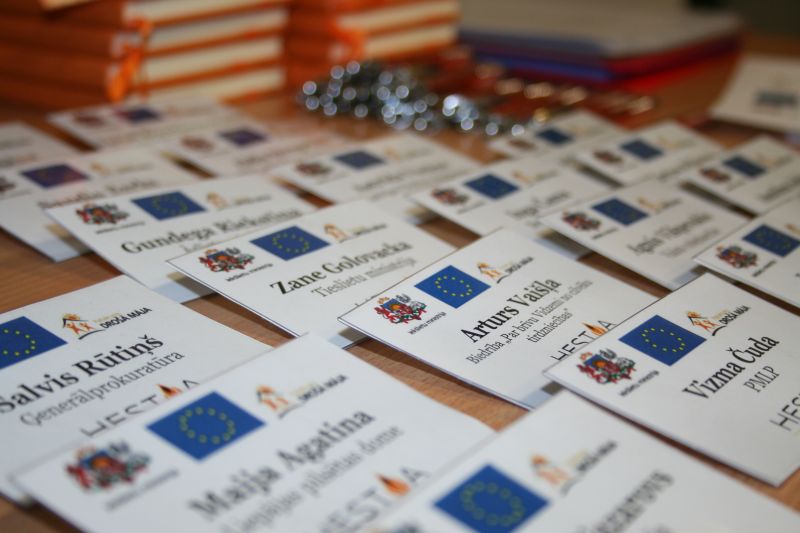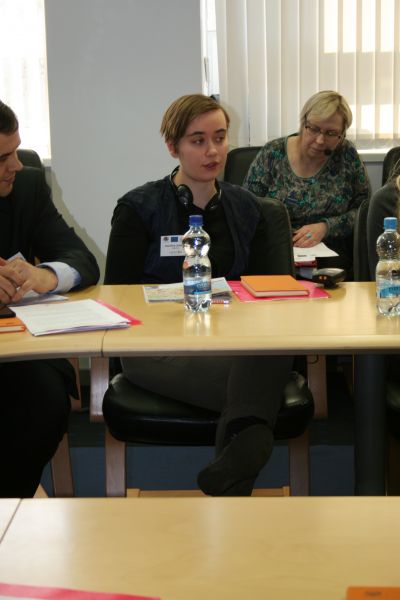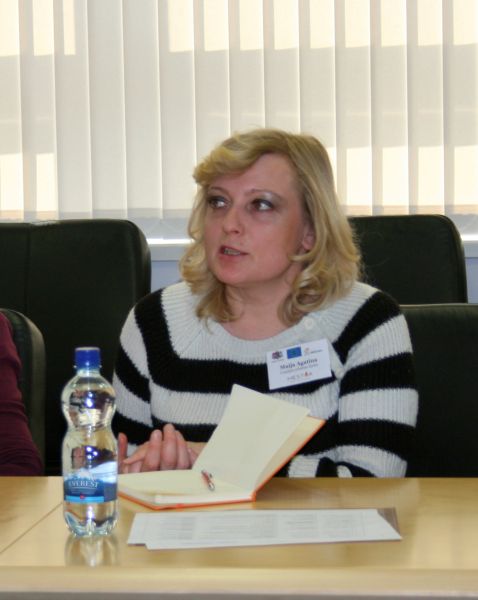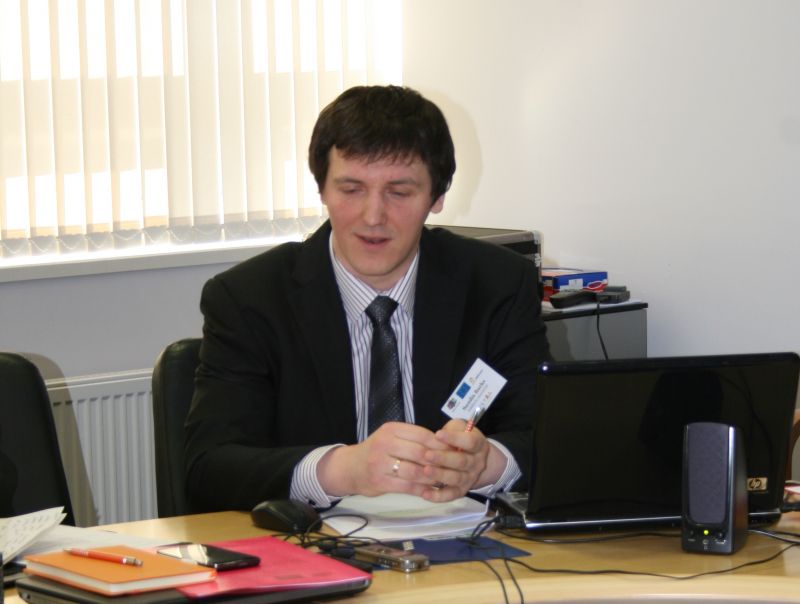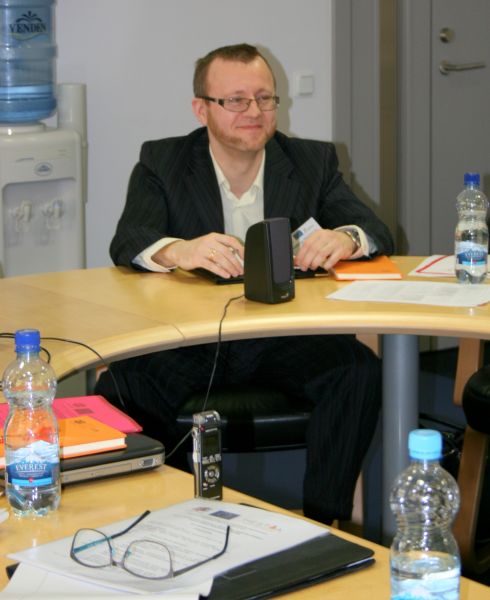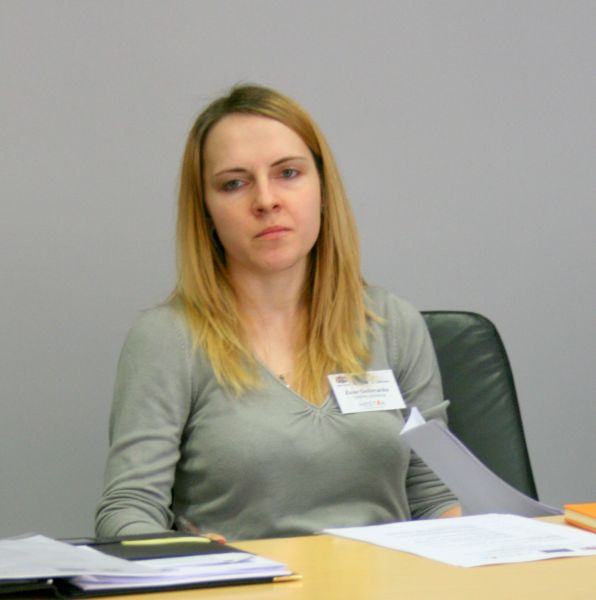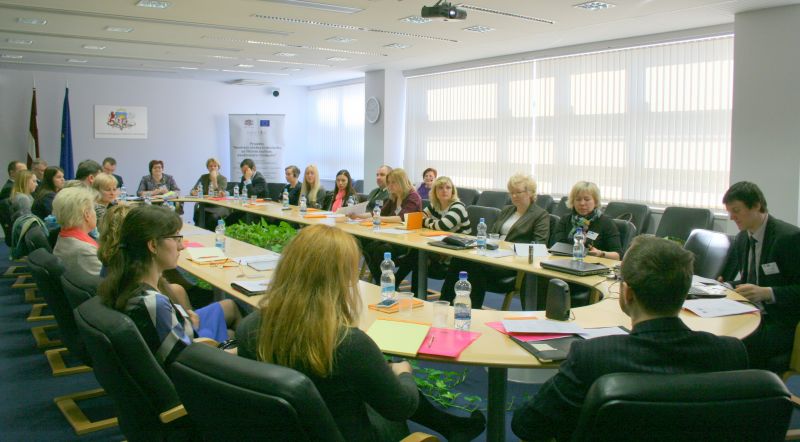In Latvia, there are several designations known and used for marriage, which is concluded between a citizen of a European Union (EU) Member State or a third country national, who is legally staying in any European Union Member State, and a third country national with the sole aim of circumventing the rules on entry and residence of third-country nationals and obtaining for the third-country national a residence permit or authority to reside in a Member State, namely “fiktīvas laulības” (sham marriage), “aprēķina laulības” (marriage of convenience), “darījuma laulības” (business-deal marriage), “piespiedu laulības” (forced marriage). During the meeting, participants agreed that the most appropriate designation for such marriage is “fiktīvas laulības” (sham marriage), since, for the purposes of the Civil Law, a marriage is sham, if it is concluded without the intent to create a family.
The representative of the Terminology Commission of the Latvian Academy of Sciences (LAS) Astrīda Vucāne informed that the LAS Terminology Commission supported the term “fiktīvas laulības” (sham marriage) and its official approval, since the key word “fiktīvs” (sham) is used in the Civil Law in relation to such marriage.
In relation to trafficking in human beings for the purpose of concluding a sham marriage, experts proposed to use the term “piespiedu laulības” (forced marriage), since there are several forced elements in this case — a person is deceived by using its vulnerability condition and is often influenced physically.
If means of constraint are used to involve a person in a sham marriage (violence, deceit, fraud), in using the concept of a sham marriage in English language, the most appropriate term would be “forced marriages”, rather than “sham marriages” used in colloquial language.
The representatives of local governments from the social services of Liepāja, Madona and Trikāta of Beverīna Region informed participants about the cases of human trafficking identified and resolved in their practice, when clients were used to enter into sham marriages.

The society “Shelter “Safe House”” informed those present about the information campaigns previously organised in Latvia and current preventive activities for reducing human trafficking, inviting the participants of the meeting to actively cooperate further and carry out explanatory work when dealing with different target groups to prevent the abuse of persons and their involvement in sham marriages. Since 2007, the society provided social rehabilitation services to 113 persons, 59 of which had suffered exactly from sham marriages. In 2014, the operators of 24 h Hotline for reducing human trafficking +371 28612120 provided 220 consultations, 63 of which concerned sham marriages. During the first two months of this year, 55 consultations were provided, 16 of which concerned sham marriages.
Representatives from the Ministry of the Interior, Ministry of Foreign Affairs, Ministry of Justice, Office of the Prosecutor General, State Police, Office of Citizenship and Migration Affairs, State Boarder Guard, Northern Registry Office of the City of Riga, Riga, Liepāja, Madona and Beverīna Region local governments, Department of Welfare of Riga City Council, Latvian Academy of Sciences, society “Shelter “Safe House””, “For Vidzeme Free of Human Trafficking”, as well as a representative of HESTIA partner — European Institute for Crime Prevention and Control, affiliated with the United Nations (HEUNI) participated in the national round table meeting.
HESTIA representatives inform that such national meetings aimed at defining and resolving the issues of sham marriages are organised in the partner countries of the project as well — Estonia, Lithuania, Ireland and Slovakia.
Within the framework of the project during two years a variety of activities are provided: by the organization of discussions of legislators, policy planners and practitioners at national and regional level in each country a comprehensive research of the problem of sham marriages will be prepared; learning methodology will be developed and training will be implemented during which social workers, social educators, workers of educational institutions, media representatives, state and municipal police officers and representatives of non-governmental organizations will be educated; awareness raising campaigns and final conference of the project will be implemented. Overall, during the activities of the project it is planned to involve and address more than 700 thousand members of the society in six European Union (EU) countries.
HESTIA project partners: Ministry of the Interior (Latvia), NGO "Shelter “Safe House"" (Latvia), NGO "Mittetulundusühing"" "Living for Tomorrow" (Estonia); NGO "Caritas Lithuania" (Lithuania); Immigrant Council of Ireland (Ireland); Ministry of the Interior of Slovak Republic (Slovakia); European Institute for Crime Prevention and Control of the United Nations (HEUNI) (Finland). Project associated partners: The State Police (Latvia), Ministry of Foreign Affairs (Latvia), Department of Justice and Equality (Ireland).
An implementation of HESTIA project was launched on 1 January 2015 and would last for 24 months. From 5 to 6 February was launched the first meeting of the representatives of the project’s Member States is organized in Riga in order to discuss HESTIA future activities and plans. It is planned that HESTIA regional seminars will be organised on April 16-17 in Ogre and on April 22-23 in Aizkraukle.
*Project "Preventing human trafficking and sham marriages: A multidisciplinary solution" (HESTIA) has been funded with support from the European Commission. This publication reflects the views only of the author, and the European Commission cannot be held responsible for any use which may be made of the information contained therein. Grant Agreement Nr. HOME/2013/ISEC/AG/THB/4000005845. #HESTIA_THB
Information prepared by:
Rasa Salina, Public Relations Specialist of the project HESTIA
Tel.: 22026355, e-mail: rasa.salina@gmail.com





